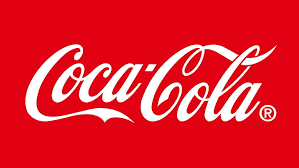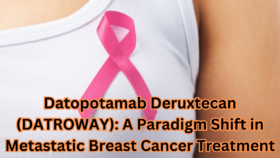Can Mixing Coca-Cola with Activated Charcoal Improve Poison Treatment? A New Study Explores the Benefits for Patients
Can Mixing Coca-Cola with Activated Charcoal Improve Poison Treatment? A New Study Explores the Benefits for Patients
Introduction
Activated charcoal is a widely recognized treatment for acute poisoning. It works by adsorbing toxins in the gastrointestinal tract, thus preventing their absorption into the bloodstream. However, the use of activated charcoal can be limited by its poor palatability and the nausea or vomiting it may induce in patients. In clinical settings, finding methods to improve patient tolerance to activated charcoal is essential for ensuring its efficacy in poisoning cases. One proposed solution is the use of a soft drink mixture to enhance the taste of activated charcoal, but the question remains: does this practice improve tolerance without affecting the charcoal’s efficacy? This article will delve into the potential benefits and drawbacks of mixing activated charcoal with a soft drink in adult poisoned patients and explore whether it affects the treatment outcome.
The Role of Activated Charcoal in Poison Management
Activated charcoal has been used for centuries as a universal antidote for many types of poisoning. When administered soon after ingestion of a toxic substance, activated charcoal binds to the toxin and prevents its absorption in the digestive tract. It is particularly effective for treating overdoses of drugs like acetaminophen, aspirin, and barbiturates.
Despite its benefits, the use of activated charcoal is associated with certain limitations, the most significant being its unpleasant taste and texture. Many patients experience difficulty ingesting activated charcoal due to its gritty, thick consistency. This can lead to non-compliance, nausea, and vomiting, all of which compromise the treatment. Medical practitioners are continually looking for ways to make the consumption of activated charcoal more tolerable, hence the consideration of mixing it with soft drinks.
The Problem of Poor Tolerance
A significant number of patients find activated charcoal difficult to swallow due to its texture and taste. This is particularly problematic in emergency settings where time is of the essence, and rapid administration is crucial for effective treatment. If patients cannot tolerate the charcoal, they may not ingest enough for it to work effectively, leading to suboptimal outcomes in poisoning cases.
Nausea and vomiting are also common side effects of activated charcoal consumption. When patients vomit after ingesting the charcoal, the treatment becomes less effective because a significant portion of the dose is lost. Moreover, vomiting may further delay the administration of additional treatments, putting the patient at greater risk of harm from the ingested toxin.
Soft Drink Mixtures: A Possible Solution?
The use of soft drinks to improve the palatability of activated charcoal has been proposed as a potential solution. Soft drinks are carbonated and flavored, which could theoretically mask the taste and texture of the activated charcoal, making it easier for patients to tolerate. Additionally, the sugar content in soft drinks may have a soothing effect on the gastrointestinal tract, reducing the likelihood of nausea.
But while a soft drink mixture might improve tolerance, healthcare professionals must also consider whether it affects the efficacy of the activated charcoal. The effectiveness of activated charcoal depends on its ability to adsorb toxins within the gastrointestinal tract. Any substance that interferes with this adsorptive capacity could potentially diminish the charcoal’s efficacy. Soft drinks contain ingredients like sugars, acids, and flavorings, which might interact with the charcoal and reduce its ability to bind toxins. Therefore, it’s essential to explore whether a soft drink mixture compromises the overall effectiveness of activated charcoal.
Studies on Tolerance and Efficacy
Clinical investigations have been conducted to assess whether mixing activated charcoal with soft drinks improves patient tolerance while maintaining efficacy. One study published in Clinical Toxicology involved adult patients who had ingested toxic substances. These patients were divided into two groups: one group received activated charcoal mixed with a soft drink, while the other group received plain activated charcoal.
The study’s findings suggested that the group receiving the soft drink mixture experienced significantly improved tolerance to activated charcoal. Fewer patients in this group reported nausea, and the incidence of vomiting was lower compared to the group that received plain activated charcoal. These results are encouraging, as they suggest that soft drinks may offer a practical solution for improving patient compliance in emergency settings.
However, the study also assessed whether the soft drink mixture impacted the efficacy of activated charcoal. Laboratory tests were conducted to evaluate the charcoal’s adsorptive capacity when mixed with various soft drinks. The results showed no significant reduction in the ability of activated charcoal to adsorb toxins in the presence of a soft drink. This indicates that soft drinks do not interfere with the treatment’s primary mechanism of action.
Patient Compliance and Outcomes
Patient compliance is critical in emergency medicine, particularly in cases of poisoning, where timely intervention can mean the difference between life and death. If mixing activated charcoal with a soft drink improves tolerance without reducing efficacy, this approach could lead to better patient outcomes.
In real-world settings, patients who are more willing to consume activated charcoal are more likely to receive the full dose needed for treatment. Reducing the likelihood of vomiting also ensures that the charcoal stays in the gastrointestinal tract long enough to adsorb the ingested toxins. In this sense, improving tolerance can directly contribute to the overall success of the treatment.
Limitations and Considerations
While the use of soft drink mixtures with activated charcoal shows promise, it’s important to note a few limitations. First, the types of soft drinks used in studies have generally been limited to non-caffeinated and non-alcoholic varieties. It remains unclear whether other types of beverages, such as diet sodas or energy drinks, would have the same effect on tolerance or whether they might interfere with the efficacy of the charcoal.
Furthermore, the long-term effects of administering activated charcoal with soft drinks have not been thoroughly studied. While short-term outcomes seem promising, more research is needed to determine whether repeated use of this method has any adverse effects on patients, particularly those with underlying gastrointestinal conditions.
It’s also worth considering the broader implications of using soft drinks in clinical settings. While soft drinks may improve tolerance, they are not considered healthy beverages due to their high sugar content. In emergency situations, the immediate goal is to administer treatment effectively, but clinicians should weigh the potential long-term effects of sugar consumption, especially in patients who may be prone to conditions like diabetes or obesity.
Recommendations for Clinical Practice
Based on current evidence, healthcare providers may consider using soft drinks as a method to improve patient tolerance of activated charcoal in cases of acute poisoning. The decision should be made on a case-by-case basis, taking into account the patient’s condition, the nature of the poisoning, and any potential contraindications to soft drink consumption.
For patients who are unable to tolerate plain activated charcoal, mixing the treatment with a small amount of a non-caffeinated soft drink may improve compliance without reducing the charcoal’s efficacy. However, it is essential to monitor the patient closely for any signs of reduced efficacy or delayed gastric emptying, particularly if large amounts of liquid are consumed with the activated charcoal.
Healthcare providers should also educate patients on the importance of timely administration and encourage them to take the full dose of activated charcoal to maximize the treatment’s effectiveness. As with any treatment, ongoing research and clinical experience will continue to refine the best practices for improving tolerance and outcomes in poisoning cases.
Conclusion
The use of a soft drink mixture to improve tolerance of activated charcoal in adult poisoned patients appears to be a promising approach. Clinical studies suggest that soft drinks can enhance the palatability of activated charcoal without significantly affecting its efficacy. This could lead to better patient compliance, reduced nausea, and fewer instances of vomiting, ultimately improving outcomes in cases of acute poisoning. However, more research is needed to fully understand the long-term effects of this practice and to determine whether it is suitable for all patient populations. In the meantime, healthcare providers may consider using soft drinks as a practical solution to enhance the effectiveness of activated charcoal treatment in emergency settings.
Cite this-https://www.ameripharmtimes.in/2024/09/can-mixing-coca-cola-with-activated.html
Search Keywords:- Activated Charcoal in Poisoning, Activated Charcoal Tolerance, Activated Charcoal and Soft Drinks, Charcoal for Poisoned Patients, Charcoal Efficacy in Poisoning, Soft Drink Mixture with Activated Charcoal,
Visit us at: https://www.ameripharmtimes.in




Comments